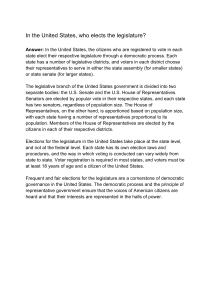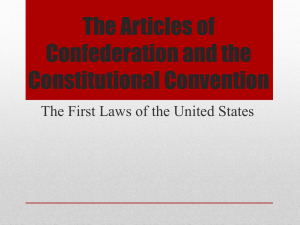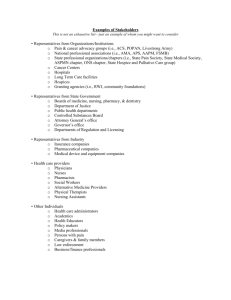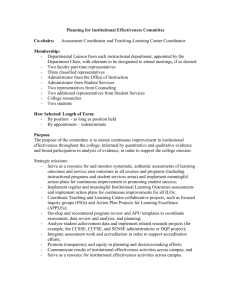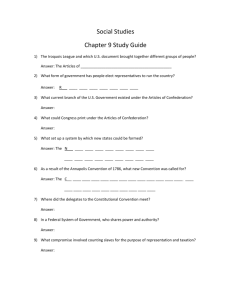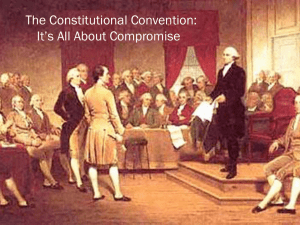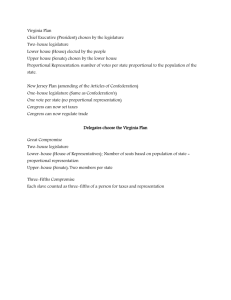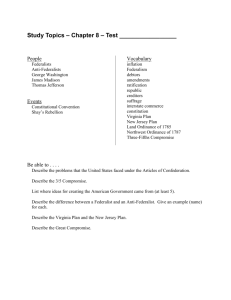The Constitution
advertisement
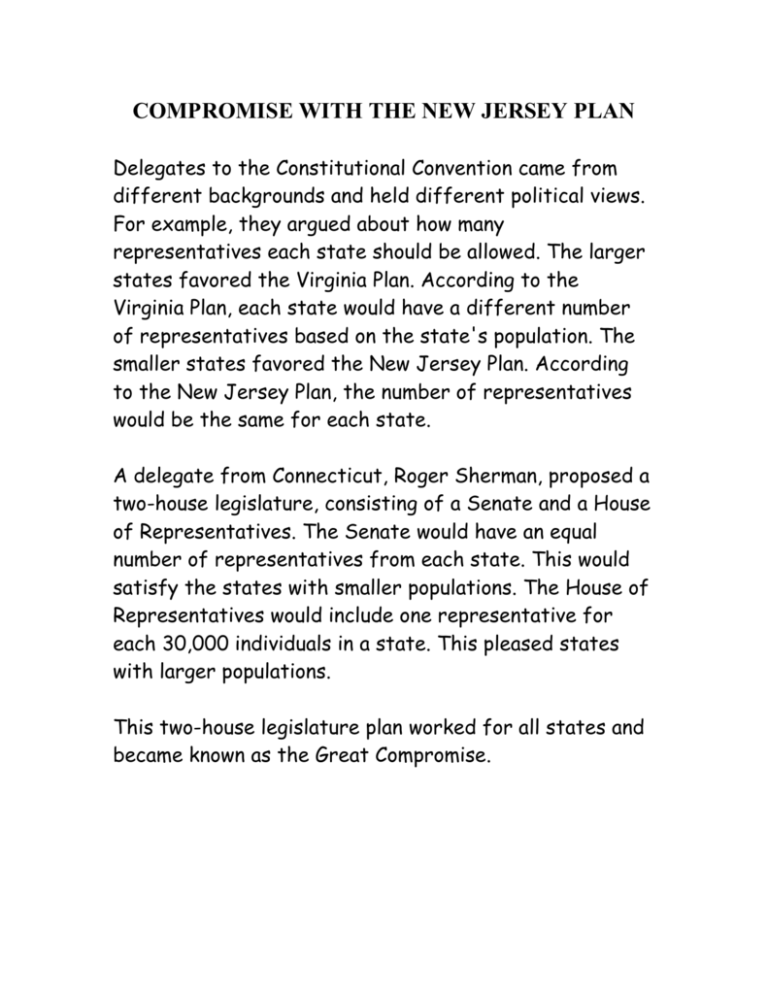
COMPROMISE WITH THE NEW JERSEY PLAN Delegates to the Constitutional Convention came from different backgrounds and held different political views. For example, they argued about how many representatives each state should be allowed. The larger states favored the Virginia Plan. According to the Virginia Plan, each state would have a different number of representatives based on the state's population. The smaller states favored the New Jersey Plan. According to the New Jersey Plan, the number of representatives would be the same for each state. A delegate from Connecticut, Roger Sherman, proposed a two-house legislature, consisting of a Senate and a House of Representatives. The Senate would have an equal number of representatives from each state. This would satisfy the states with smaller populations. The House of Representatives would include one representative for each 30,000 individuals in a state. This pleased states with larger populations. This two-house legislature plan worked for all states and became known as the Great Compromise.
